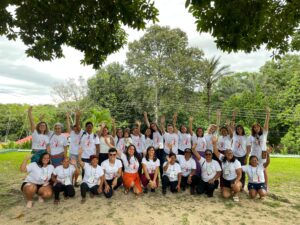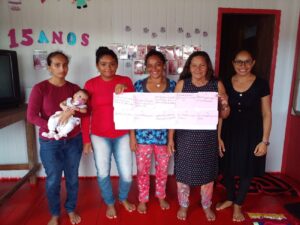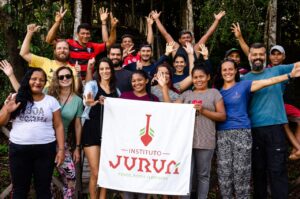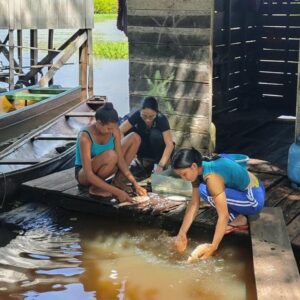The course offered by Instituto Mamirauá trains multipliers in arapaima management, who learn from the extensive experience and adapt it to the reality of their territories
By: Karina Pinheiro
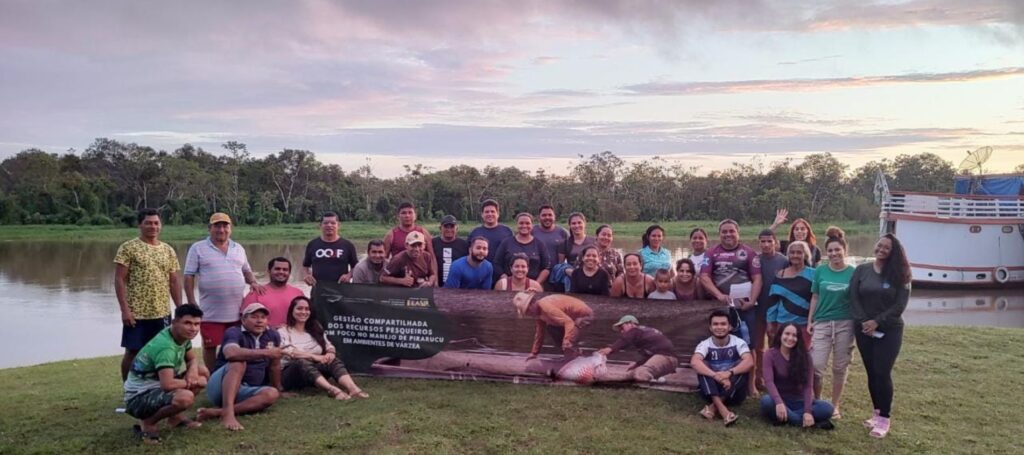
Part of the Instituto Juruá team participated in the course “Shared Management of Fishery Resources With Participatory Management of Arapaima (Arapaima Gigas) in Floodplain Environments”, promoted by the Fishery Management Program, of the Mamirauá Sustainable Development Institute (IDSM), with support from the Ministry of Science, Technology and Innovation (MCTI).
The training took place from April 18th to April 28th, 2023, in the municipality of Tefé and Boca do Jurupari community, near the Amanã Sustainable Development Reserve in Amazonas. Seventeen students from different institutions in the Northern region participated. From the Instituto Juruá, researcher Camila Duarte, Sustainable Production Technician Edimar Costa and the Fishery Resources Analyst Simélvia Vida.
“I am a fisheries engineer, I had an understanding of how the stages and process of management worked, but it is very challenging for the professionals to follow all the stages, from planning to commercialization. So, having this experience in IDSM was important to me in that sense”, states Silmévia, the Fishery Resources Analyst.
During the eleven days of immersion, the participants exchanged management experience, attended classes about research that supported arapaima management focused on the biology and ecology of the species, the way of life of riverside populations, and were introduced to the arapaima counting method, with practical activity alongside the counters from the local communities.
Debuting in the management experience, researcher Camila Duarte had a very productive experience during the stages of the course. “It is a really cool course. The idea was to tell the story of arapaima management, share the challenges, and show how they are structured. The first days were for presentations, with lectures about women in fishing, gender issues, an integration that was super interesting, and then we moved on to fishery topics, each day focusing on a different theme.”
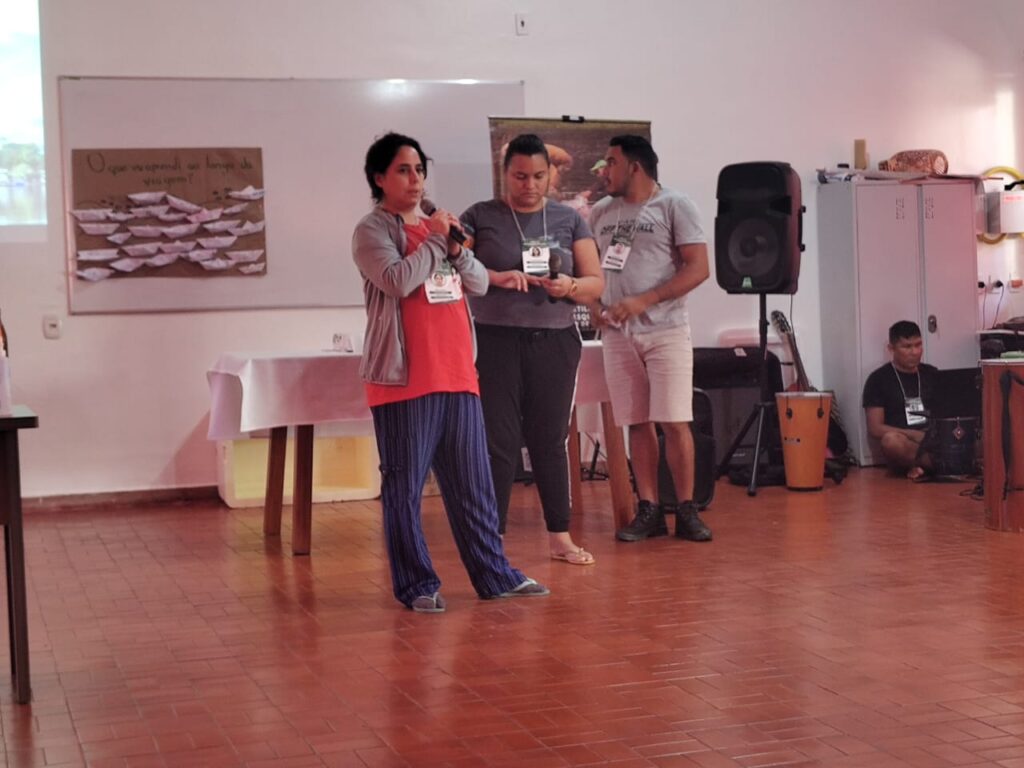
The practical part of the course was held in a community where, in addition to counting the lakes and demonstrating arapaima fishing, specificities of sanitary rules were also addressed as “the sanitary part was also very important, since the rules that emerged were created for the city and not for a floodplain area, so it was explained how the history of adaptation of the sanitary rules focused on these areas (floodplain)”, complements the researcher.
From the experience gained in the course, Instituto Juruá team members return to Mid-Juruá with new ideas, different ways of thinking and structuring the management of arapaima. These ideas will be discussed and adapted along with the residents and associations in the territory.

